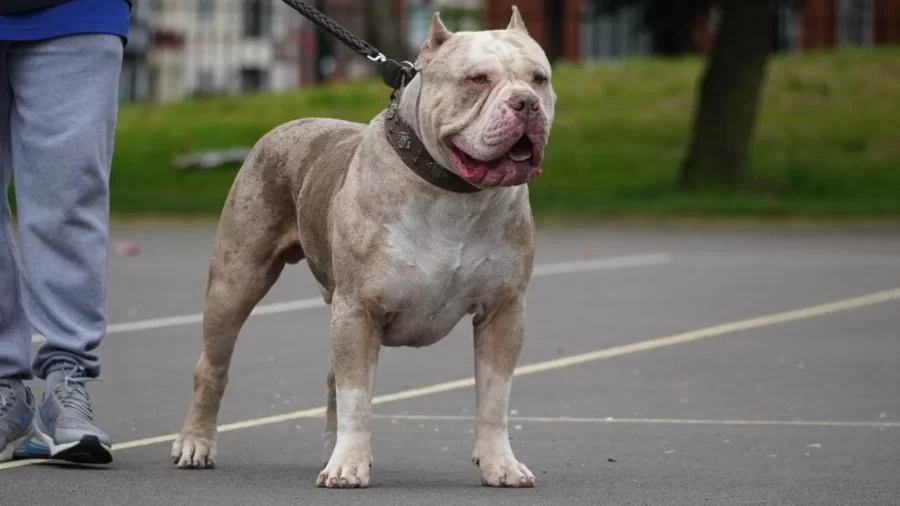If you are trying to figure out the best dog food for senior pitbulls, you have come to the right page.
As our beloved American Bullies enter their golden years, their nutritional needs undergo significant changes. Senior Pitbulls often benefit from softer foods that are easier to chew and digest while providing optimal nutrition.
This comprehensive guide explores the best ingredients, nutritional considerations, and feeding strategies for soft foods to keep your aging American Bully healthy, comfortable, and thriving in their later years.
Understanding the Aging American Bully
Before diving into nutritional specifics, it's crucial to understand how aging affects American Bullies. Typically, large breeds like American Bullies are considered seniors around 7-8 years of age. As they age, they may experience:
- Reduced metabolism and energy needs
- Muscle mass loss
- Joint stiffness and arthritis
- Dental issues
- Digestive sensitivities
- Cognitive decline
- Weakened immune system
Why Soft Food for Senior American Bullies?
Soft foods offer several benefits for aging Pitbulls:
- Easier to chew: Helps dogs with dental issues or missing teeth
- Higher moisture content: Aids in hydration and kidney function
- Often more palatable: Encourages eating in dogs with reduced appetites
- Easier to digest: Beneficial for dogs with sensitive stomachs
- Can be nutrient-dense: Allows for concentrated nutrition in smaller portions
Key Ingredients for Senior American Bully Nutrition
1) High-Quality Protein Sources
- Lean meats: Chicken, turkey, or fish as primary ingredients
- Egg whites: Easily digestible and rich in essential amino acids
- Organ meats (in moderation): Nutrient-dense sources like liver or heart
2) Healthy Fats
- Omega-3 fatty acids: Found in fish oil, krill oil, or flaxseed
- Medium-chain triglycerides (MCTs): Can support cognitive function
- Coconut oil: May help with skin health and cognitive function
Fats are essential for energy, but should be moderated to prevent weight gain. Omega-3s are particularly beneficial for joint health and cognitive function.
3) Digestible Carbohydrates
-
- Sweet potatoes: Rich in fiber and antioxidants
- Pumpkin: Excellent for digestive health
- Brown rice or oatmeal: For dogs without grain sensitivities
- Quinoa: A complete protein and good source of fiber
Choose complex carbohydrates that provide sustained energy and support digestive health.
4) Joint-Supporting Nutrients
-
- Glucosamine and chondroitin: Natural compounds that support joint health
- Green-lipped mussel: A rich source of omega-3s and joint-supporting nutrients
- Turmeric: Has anti-inflammatory properties
These ingredients can help manage arthritis and promote joint mobility in senior dogs.
5) Antioxidant-Rich Fruits and Vegetables
-
- Blueberries: Rich in antioxidants and support cognitive function
- Spinach: Packed with vitamins and minerals
- Carrots: Good source of beta-carotene
- Apples (without seeds): Provide fiber and vitamins
Antioxidants help combat oxidative stress and support the immune system in aging dogs.
6) Probiotics and Prebiotics
-
- Probiotic strains like Lactobacillus and Bifidobacterium
- Prebiotic fibers such as chicory root or inulin
These support digestive health, nutrient absorption, and can boost the immune system.
7) Essential Vitamins and Minerals
-
- Calcium and phosphorus: In the right ratio for bone health
- Vitamin E: Supports cognitive function and skin health
- B-complex vitamins: Important for energy metabolism
- Zinc: Supports immune function and skin health
Ensure a balanced mix of vitamins and minerals to support overall health.
Nutritional Considerations for Senior American Bullies
When formulating a soft food diet for your aging Pitbull, keep these factors in mind:
- Protein Content: Aim for foods with 25-30% protein on a dry matter basis. High-quality protein is crucial for maintaining muscle mass, but excessive amounts can strain aging kidneys.
- Calorie Control: Senior dogs often need 20-30% fewer calories than adult dogs. Monitor your dog's weight and adjust portions accordingly to prevent obesity.
- Moisture Content: Wet foods or rehydrated foods with 70-80% moisture can help maintain hydration and support kidney function.
- Fat Content: Moderate fat content (10-15% on a dry matter basis) provides necessary energy without contributing to weight gain.
- Fiber: Adequate fiber (3-5%) supports digestive health and can help manage weight.
- Texture: Opt for soft, pate-like textures or small, tender chunks that are easy to chew and swallow.
- Limited Ingredients: If your dog has sensitivities, consider foods with a limited number of novel ingredients.
- Avoid Artificial Additives: Steer clear of foods with artificial colors, flavors, or preservatives, which can potentially cause sensitivities in older dogs.
Homemade Soft Food Options
Preparing homemade meals allows you to control ingredients and tailor the diet to your American Bully's specific needs. Consider the following recipe template:
- 50% lean protein (e.g., cooked chicken, turkey, or fish)
- 25% complex carbohydrates (e.g., sweet potato, brown rice)
- 25% low-oxalate vegetables (e.g., carrots, green beans, zucchini)
- Added supplements as recommended by your veterinarian
Always consult with a veterinary nutritionist to ensure homemade diets are balanced and meet all your dog's nutritional needs. They may recommend additional supplements to ensure complete nutrition.
Feeding Strategies for Senior American Bullies
- Multiple Small Meals: Divide daily food intake into 2-3 smaller meals to aid digestion and maintain steady energy levels.
- Consistent Feeding Times: Establish a regular feeding schedule to help with digestion and bathroom habits.
- Elevated Food Bowls: Can make eating more comfortable for dogs with arthritis or neck pain.
- Food Temperature: Slightly warm food can enhance aroma and palatability for picky eaters.
- Gradual Transitions: When introducing new foods, do so gradually over 7-10 days to avoid digestive upset.
- Monitor Water Intake: Ensure fresh water is always available, especially if feeding dry food softened with water.
- Regular Weigh-Ins: Monitor your dog's weight regularly and adjust food portions as needed.
Potential Challenges and Solutions
- Decreased Appetite: Try warming food slightly or adding low-sodium broth to enhance aroma and flavor.
- Dental Issues: Opt for softer textures or consider dental chews designed for senior dogs to maintain oral health.
- Digestive Sensitivities: Introduce novel protein sources or consider a limited ingredient diet.
- Weight Management: Incorporate low-calorie vegetables like green beans to add volume without excess calories.
- Medication Interactions: Consult your veterinarian about potential food-drug interactions and optimal timing for meals and medications.
Conclusion
Providing the right nutrition for your senior American Bully is crucial for maintaining their health and quality of life in their golden years. Focus on high-quality proteins, healthy fats, and nutrient-dense carbohydrates in soft, easily digestible forms. Regular veterinary check-ups and consultations with a canine nutritionist can help you fine-tune your dog's diet as they age.
Remember, every dog is unique, and what works for one may not work for another. Pay attention to your American Bully's individual needs, preferences, and health conditions. With the right nutrition and care, your aging Pitbull can continue to enjoy life to the fullest in their senior years.
Revealed: Stunning Differences Between Red Nose And Blue Nose Pitbulls
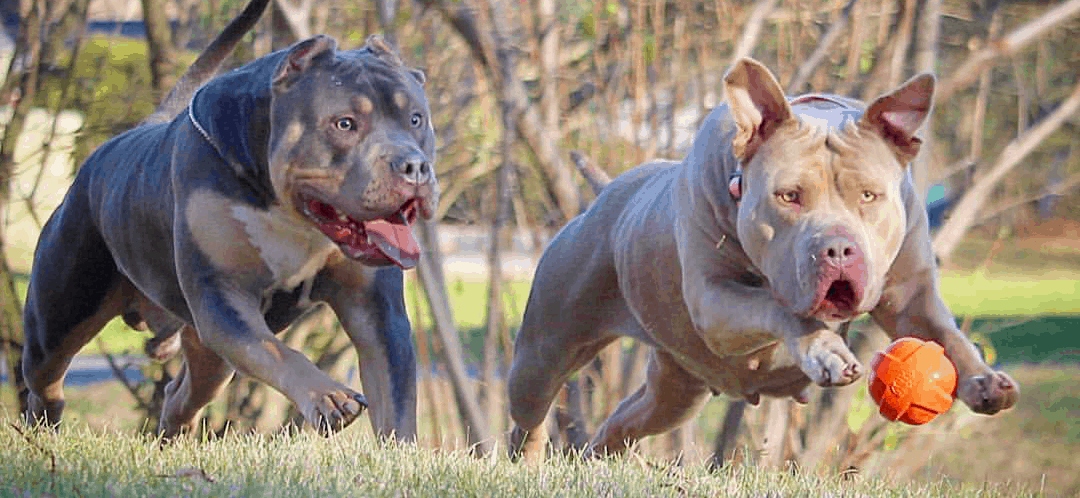
Latest
The Best Diet for Pitbull Puppies: What’s New in 2025?
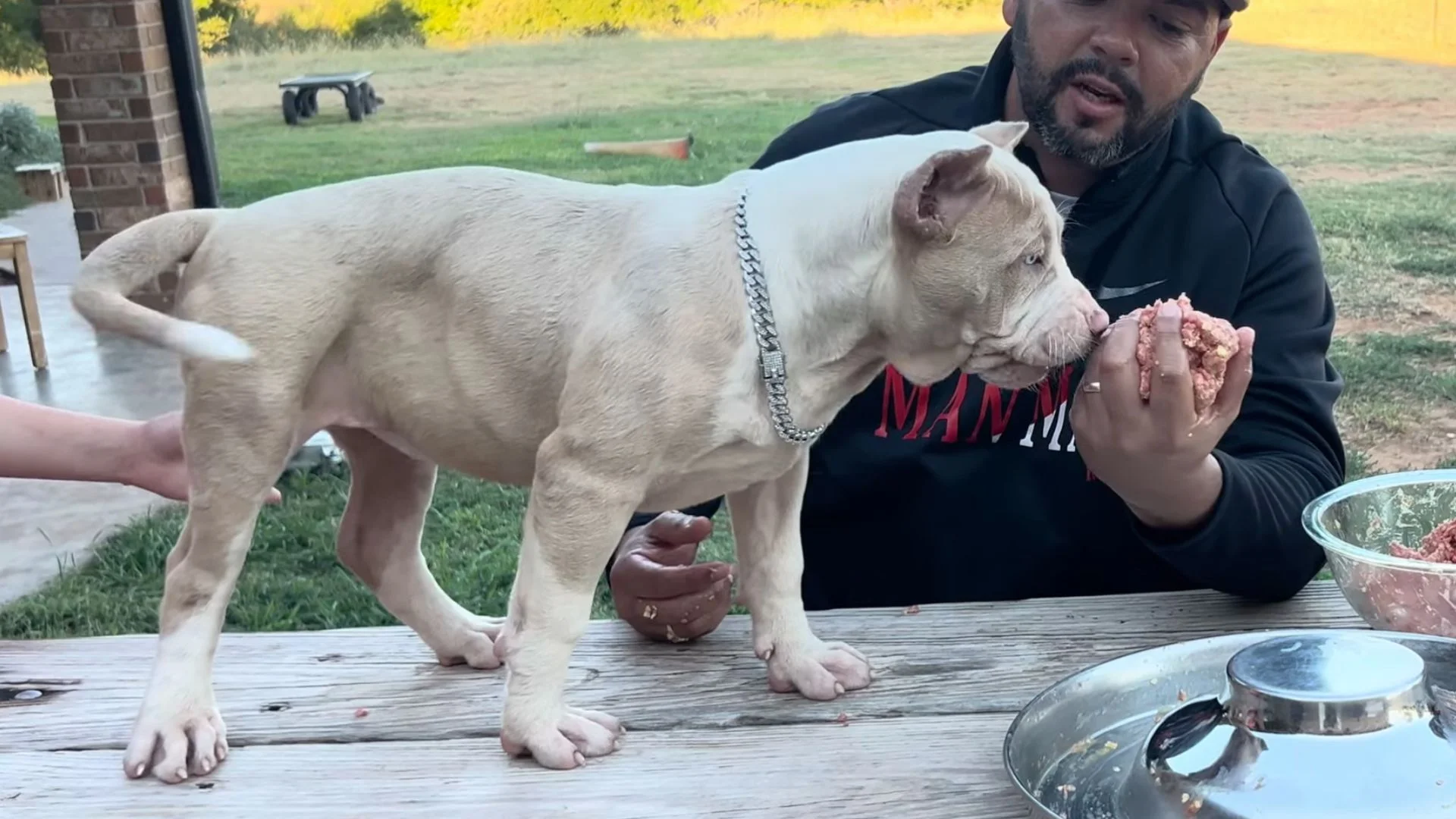
How to Vaccinate A Puppy at Home: A Complete Guide for First-Time Owners

How Friendly Are American Bullies With Other Animals?
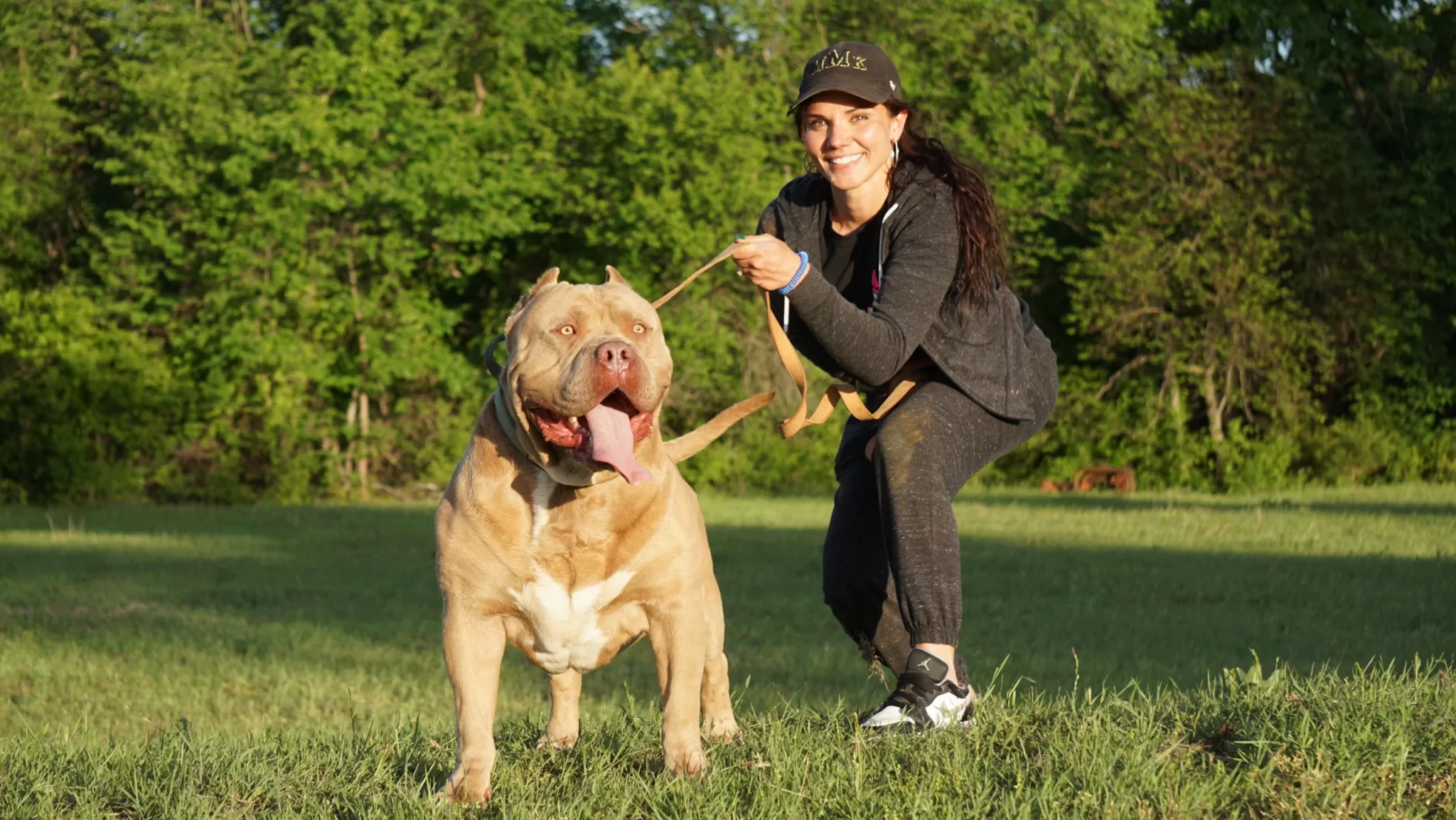
How to Choose the Best Stud Dog for XL Pitbull Breeding: A Complete Guide
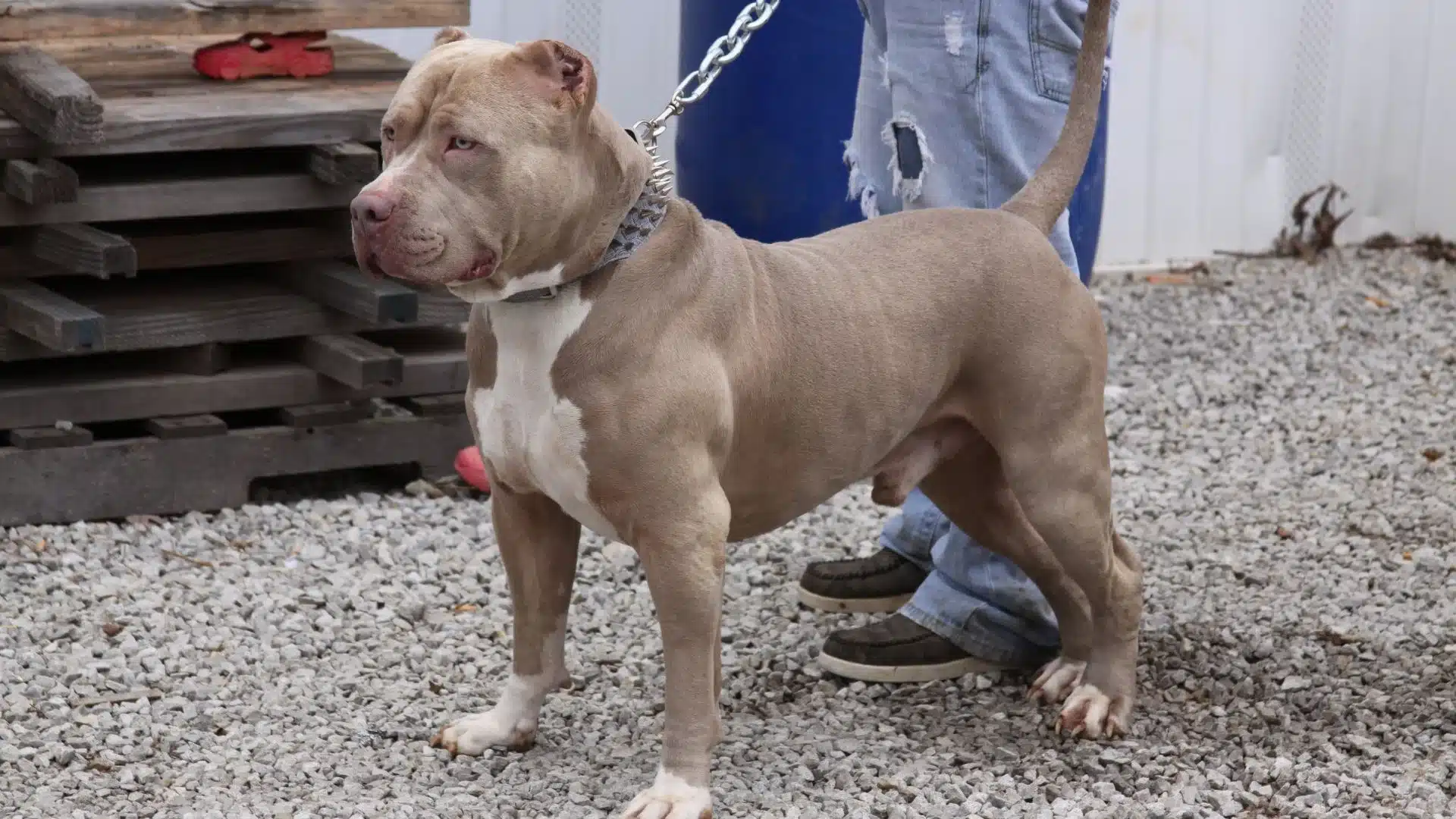
I am a highly skilled content writer and SEO expert with a passion for helping small businesses succeed in the digital world. With my extensive knowledge of the latest SEO techniques and strategies, I have successfully assisted numerous clients in improving their website rankings, generating more leads, and driving a significant increase in website traffic.
As a professional content writer and SEO expert, I am confident in my ability to contribute significantly to the success of small businesses. If you are seeking a results-driven, highly skilled digital marketer who can help you increase your ranking, convert new leads, and see a substantial improvement in website traffic, I would welcome the opportunity to collaborate with you.
Website: https://manmadewebsites.com/
Email: hello@digitalmarketingchap.com

